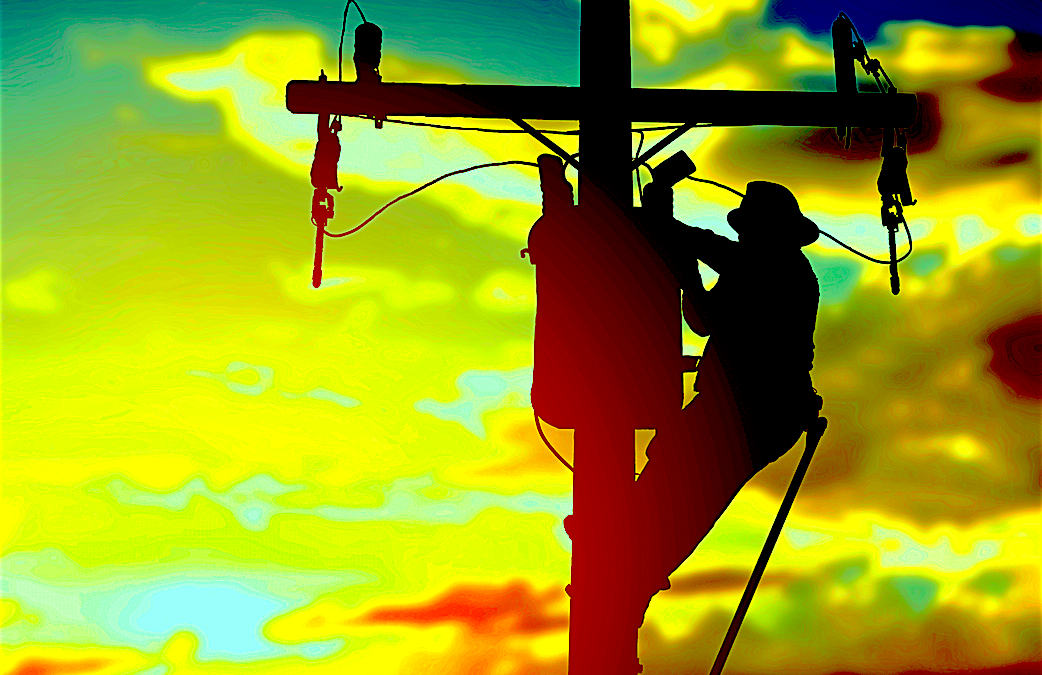In football, a team’s quarterback and backfield typically receive the most attention. They handle the ball and get it where it’s going or intercept it. Little attention is given to the linemen who have one square yard of responsibility. And, in most cases, how they do their jobs can be a key factor in winning or losing a game. So, who are the linemen during the current COVID-19 pandemic?
We hear a lot about thanking doctors, nurses, first-responders, truckers, grocery-store personnel, and food-delivery-service workers, among others, for their sacrifices, and how these folks are now the infrastructure. And they should be thanked. Yet, we aren’t hearing much about the construction workers, utility workers, Internet technicians, HVAC trades, mechanics and repair technicians, and others who continue to work in the field. Most of them would note that all this “virus stuff” is just another challenge that must be dealt with.
The electrician is still working on installing or troubleshooting a company’s equipment. The construction trades are still building or retrofitting that medical facility to handle more beds. The electric-motor repair technician is still rebuilding that critical ventilation motor at an “essential” business or that failed pump in a water-treatment operation. The HVAC tech is still on the roof of that hospital making sure the facility’s air is turning over enough to prevent the people inside from getting sick (or sicker).
While we are seeing shortages in PPE for medical workers and first-responders, that same type of PPE is also needed for some of the trades to be able to perform their work. Still, the tradesperson is conditioned to adjust to changing situations and be able to accomplish his or her required task, regardless. As many people are locked in at home watching reports of the mounting numbers of coronavirus cases and deaths on TV, countless maintenance technicians are working long, hard hours to ensure that production equipment is operating and factory workers and automation are keeping the economy rolling.
In Chicago, while performing troubleshooting on a ventilation motor for a building-construction project near the Loop, it was noted that vehicles in parking lots were primarily those of various trades, who, in their reflective vests and jackets, appeared to make up the majority of pedestrians on the streets. Everybody was taking the situation seriously and acknowledging the fact that they were thankful for all co-workers, including those who stayed home, even if they just had the sniffles.
With each passing day, and not knowing who would show up, or not, the IBEW electricians and operator locals were sorting out ways to ensure scheduled work was being completed while also seeing to the safety of contractors. The feeling of camaraderie was strong, with many happy to be able to work.
Those of us in the mixed trades, i.e., reliability consulting and performing trades work, are doing our best to stay home when we’re considered non-essential and then traveling and performing our tasks when we’re deemed essential. We also understand the risks every time we go to a job site.
What has the pandemic done to the trades? It has clearly defined which of our tasks need to be performed onsite and which can be performed at a distance. Those who can adjust will survive the crisis. Those who can’t adjust will be severely impacted.
It’s ironic that the trades had started receiving attention over the past few years with regard to the skilled-worker crisis. The new generation of trades has been entering the workforce, learning skills, taking vocational-training courses, becoming certified in their fields, and discovering that they are not carrying significant debt. At a young age, they have an income and transferable skills that are valuable when the chips are down. Thus, many are secure as we move through this tough period.
In these times of determining what’s truly essential, we find the trades at the top of the list. They’re like the linemen on a football team: there to ensure that whatever needs to be done can be. After all, trades typically come with a mindset that’s conditioned to adjust to a chaotic climate, whether that involves racing into a hurricane to ensure that power comes back up or keeping crumbling infrastructure from collapsing when we need it the most.
When contemplating the direction in which to point our children as they consider options for a career path and secure future, we should ask ourselves if we really need more MBAs. Or, do we need that welder, electrician, machinist, mechanic, operator, utility worker, or any of the other skills and trades that keep all of us up and running and secure?TRR
ABOUT THE AUTHOR
Howard Penrose, Ph.D., CMRP, is Founder and President of Motor Doc LLC, Lombard, IL and, among other things, a Past Chair of the Society for Reliability and Maintenance Professionals, Atlanta (smrp.org). Email him at howard@motordoc.com, or info@motordoc.com, and/or visit motordoc.com.



